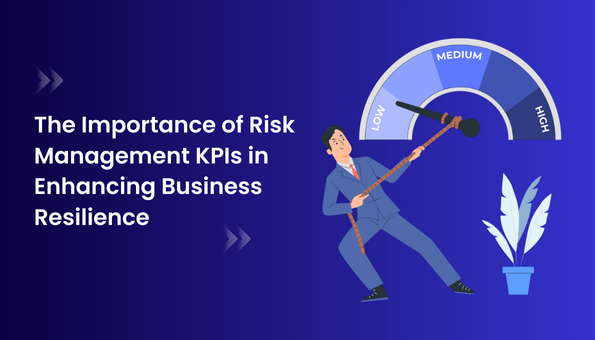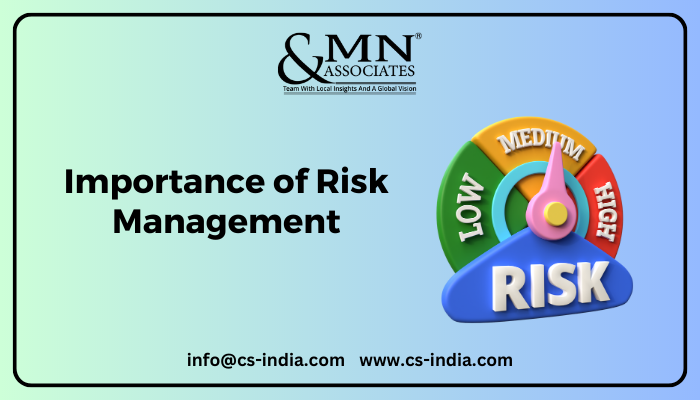Why the Importance of Risk Management Cannot Be Ignored in Today’s Economy
Why the Importance of Risk Management Cannot Be Ignored in Today’s Economy
Blog Article
The Importance of Understanding the Significance of Risk Management in Different Industries

The Core Principle of Risk Management and Its Purpose
Risk Management, the foundation of numerous industries, rests on the identification, assessment, and mitigation of unpredictabilities in a business setting. It is an essential technique that enables organizations to protect their assets, credibility, and total survival. By properly determining prospective risks, businesses can establish methods to either prevent these risks from occurring or reduce their effect. The evaluation procedure involves evaluating the possibility and possible intensity of these threats. The reduction procedure involves creating methods to decrease their prospective influence as soon as risks have actually been determined and reviewed. This process is recurring and intermittent, making sure that services are gotten ready for the ever-changing nature of Risk in different industries. The key purpose, therefore, is to promote resilience amidst uncertainties.
Benefits of Implementing Risk Management in Organization Workflow

Introducing the Function of Risk Management in Different Industries
While every industry confronts its one-of-a-kind set of risks, the implementation of Risk Management approaches stays a common in their search of sustainability and development. In the health care field, Risk Management involves making certain patient safety and information security, while in financing, it involves mitigating investment threats Web Site and guaranteeing regulatory compliance. Ultimately, the role of Risk Management throughout sectors is to recognize, examine, and alleviate dangers.
Real-life Study Demonstrating Effective Risk Management
To comprehend the significance of Risk Management in these several industries, one can seek to a number of real-life circumstances that highlight the effective application of these procedures. In the power field, British Oil developed Risk reduction prepares post the 2010 Gulf of Mexico oil spill. They carried out better safety treatments and stricter policies which substantially minimized further crashes. In money, Goldman Sachs effectively browsed the 2008 monetary dilemma by identifying prospective mortgage-backed safeties dangers early. Lastly, Toyota, publish the 2011 earthquake in Japan, revised its supply chain Management to lessen interruption threats. These cases demonstrate just how markets, picking up from situations, properly applied Risk Management approaches to decrease future dangers.
Future Patterns and Growths in Risk Management Methods
As the world continues to progress, so as well do the fads and advancements in Risk Management approaches. Quick developments in technology and data analytics are reshaping the Risk landscape. Huge information and AI are now important in anticipating and mitigating risks. Organizations are leveraging these devices to build anticipating models and make data-driven decisions. Cybersecurity, as soon as an outer issue, has actually catapulted to the forefront of Risk Management, with strategies focusing on prevention, response, and discovery. The combination of ESG (Environmental, Social, Administration) variables right into Risk Management is another expanding trend, reflecting the boosting recognition of the role that why not try this out social and ecological risks play in business sustainability. Therefore, the future of Risk Management hinges on the fusion of innovative technology, ingenious techniques, and a holistic strategy.
Final thought
In verdict, understanding the value blog here of Risk Management throughout a range of markets is essential for their long life and success. Ultimately, successful Risk Management adds to more resilient and sustainable services, highlighting the relevance of this technique in today's highly affordable and dynamic business setting.
While every market faces its one-of-a-kind collection of risks, the execution of Risk Management strategies remains an usual in their pursuit of sustainability and development. In the healthcare sector, Risk Management entails making certain individual safety and security and information security, while in financing, it involves mitigating investment threats and making certain regulatory conformity. Inevitably, the role of Risk Management throughout sectors is to recognize, evaluate, and reduce dangers. These instances demonstrate how industries, learning from crises, properly applied Risk Management methods to decrease future dangers.

Report this page